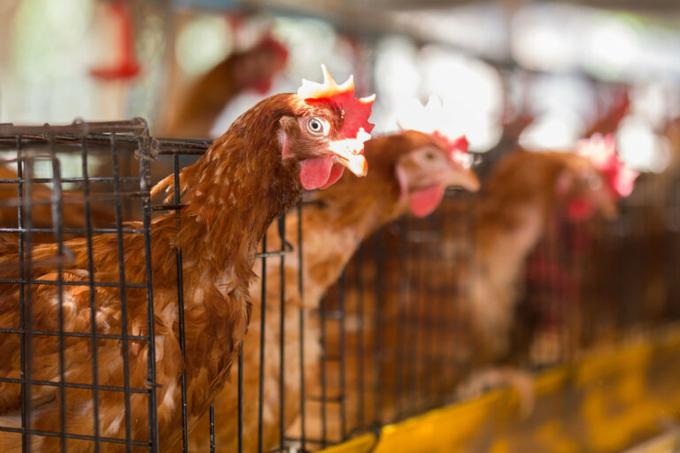May 21, 2025 | 11:59 GMT +7
May 21, 2025 | 11:59 GMT +7
Hotline: 0913.378.918
May 21, 2025 | 11:59 GMT +7
Hotline: 0913.378.918

"If a sufficient number of cage farms in Slovakia are not reconstructed by 2025, there is a real risk that eggs from Slovakia could be gradually replaced by foreign suppliers in international retail chains," says Daniel Molnár, director of the Poultry Union of Slovakia. Photo: Canva.
This case could be a indication of big problems for the entire poultry industry, which is braced for painful changes.
Hydina Slovensko has been grappling with financial woes in recent years. In 2022, it recorded a staggering net loss of €4 million, marking its worst performance to date. The company, which has been operating since 2009, has been in the red since 2019, a trend that has only worsened over time.
Local press reported that Hydina Slovensko’s problems could be partly attributed to the upcoming ban on the sale of eggs from cage farms, which is due to come into force in 2025.
Daniel Molnár, director of the Poultry Union of Slovakia, explained that big European retail chains notified their Slovak partners they would no longer accept eggs from cage farms from next year, though the existing veterinary laws mandate the ban on this production method neither in Slovakia nor at European level.
The Slovak poultry industry is in dire need of government support to the tune of €65 million. According to farmers, this financial injection is crucial for facilitating the transition to free-range production. However, the prospects of the appeal to allocate this money remain uncertain, and businesses are warning of a potential wave of bankruptcies in the coming months if funds for the transition are not secured.
“If a sufficient number of cage farms in Slovakia are not reconstructed by 2025, there is a real risk that eggs from Slovakia could be gradually replaced by foreign suppliers in international retail chains,” Molnár cautioned, highlighting the potential threat to the local industry.
Molnár also revealed that poultry breeders are extremely concerned over possible fraud in the labelling of eggs from other EU countries. He explained that, as far as the Slovak farmers are concerned, the transition towards free-range production is sluggish in other European countries, so it is not entirely clear how the new standards will be met.
The need to fund the transition comes at a time when Slovak poultry farmers are experiencing a lasting cost crisis. Molnár said that over the last 2 years, farmers saw their costs rising across the board, with electricity and gas costs going through the roof.
“In 2023, we also noticed a significant increase in the prices of packaging materials, an increase in fuel prices, as well as an increase in labour costs due to rising inflation,” he explained.
(Poultryworld)

(VAN) Attempts to bring down the price of the Japanese staple have had little effect amid a cost-of-living crisis.

(VAN) Fourth most important food crop in peril as Latin America and Caribbean suffer from slow-onset climate disaster.

(VAN) Shifting market dynamics and the noise around new legislation has propelled Trouw Nutrition’s research around early life nutrition in poultry. Today, it continues to be a key area of research.

(VAN) India is concerned about its food security and the livelihoods of its farmers if more US food imports are allowed.

(VAN) FAO's Director-General emphasises the need to work together to transform agrifood systems.

(VAN) Europe is facing its worst outbreak of foot-and-mouth since the start of the century.

(VAN) The central authorities, in early April, released a 10-year plan for rural vitalization.